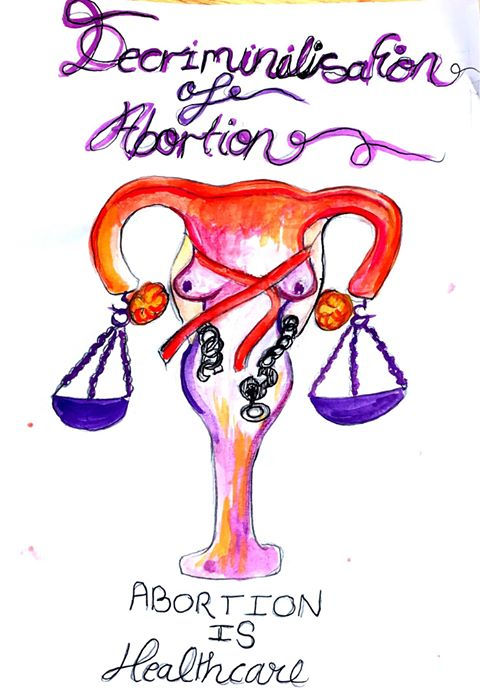Medical Racism: health inequalities in clinical trials
- VOICE FOR CHOICE
- Jul 6, 2020
- 3 min read
Written by Alice Stuart-Brown (she/her)
The UK’s health system is inexplicably racist. The inequality in treatment between white people and people of colour is an issue that runs to the very centre of the pharmaceutical industry, an issue that is known about but never addressed. This is something that has been the forefront of our minds as the deaths due to the coronavirus pandemic rose at an alarming rate in minority communities. But health inequalities run much deeper. It’s a complex and multifaceted issue built on years of abuse and mistrust but the organisation I have been working for, Future Genetics, are tackling a small area of this to redress the balance.
The drugs don’t work. The figures aren’t clear, but the inescapable truth is that 40-70% of drugs don’t work in none-white populations. This largely boils down to one issue: underrepresentation in clinical trials. Clinical trials are performed when a drug or therapy has been tested and declared safe to use in human populations, they’re used to determine the appropriate doses to prescribe a patient. This works perfectly if the trials are representative the differences in drug metabolism, which is often altered by slight alterations in DNA between ethnic groups, would become clear between patients of different ethnicities and doses would be adjusted accordingly. However, the unfortunate truth, is that in the UK 99% of clinical trial participants are white. Doses are adjusted in white populations for white patients and 17%, of the country is ignored. The most infamous example showing the danger of the lack of diversity in clinical trials is the human trials of the first clinically ‘safe’ beta blockers, a therapy used to fight high blood pressure. They initially worked when prescribed but soon the unavoidable truth surfaced that black patients were still dying in great numbers from hypertension. After research was conducted into why this was happening it was discovered that black patients required four times the dose than the white trial populations. The lack of diversity was responsible for the loss of black lives in significant numbers.

Future Genetics was set up by Dr Mohammed Kamran in an effort to tackle health inequality by asking why this lack of diversity is so intrinsic in our health systems. By researching and speaking directly to patients through GP surgeries and health clinics, it has become clear that years of mistreatment of minority groups in the UK, from birth control being used as a eugenic tool to the day-to-day racial prejudices towards patients are responsible. These are perpetuated as the people in positions to instigate change hide behind excuses. So as well as focussing on the genetic epidemiology of common, hereditary diseases future genetics is aiming to make information accessible to people in none-healthcare settings. We are also aiming to tackle health inequalities by performing research into precision medicine, an emerging medical model in which the current method of blanket medication, in which every patient is treated the same way, is exchanged for therapies suited to an individual patient, our research focusses on the genetic influence of patients on diseases through the discovery of disease biomarkers- molecular and genetic indicators of disease.
We need a healthcare system that meets the clinical need of all patients, the discovery of disease biomarkers will allow patients and their families to make life-style and healthcare decisions based on their genetic makeup, it will limit the number of unnecessary deaths due to failed medication that we see all too often.
Health inequalities arising from social disparity are particularly pertinent in sexual health issues. Our healthcare not only favours white people, but somewhat unsurprisingly, white men. Sanali Wayal and colleagues illustrated that there was a far lower self-reported “sexual competence” among black women than among white British women. Low sexual competence meant failure to meet at least one of four criteria: contraceptive protection, autonomy of decision, both partners equally willing, and that it happened at the right time. coercion leads to a higher rate of STIs, unwanted pregnancy and other adverse health outcomes. Education is an often overlooked element of healthcare but prevention is always better than treatment and we are failing ethnic minority communities by making sexual health education inaccessible.[1]
As scientists, in the absence of fair and appropriate policy, it is our responsibility to engage all groups, to ensure the increased diversity of our field. Many of us entered the fields of science and medicine with high aspirations of making a difference but until we address areas of dangerously unmet clinical need, we can not honestly say we have achieved this goal.
[1] Wayal S, Hughes G, Sonnenberg P, et al. Ethnic variations in sexual behaviours and sexual health markers: findings from the third British National Survey of Sexual Attitudes and Lifestyles (Natsal-3). Lancet Public Health. 2017; 2: e458-e472





Comments